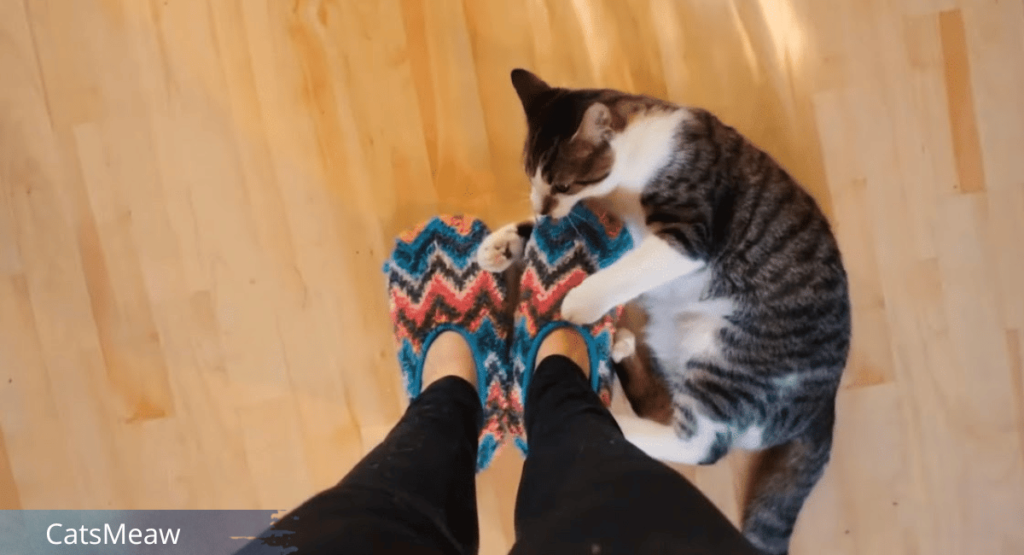Having a furry feline friend around the house adds a certain charm to our lives. However, it can be quite perplexing when suddenly your cat attacks your feet, turning playtime into a playful attack.

In this article, we will explore the reasons behind this common behavior and shed some light on why do cats attack feet.
Table of Contents
That is Why Your Cat Attacks Your Feet
Cats are natural-born hunters, even if they spend most of their time lounging lazily in your living room. Their predatory instincts are hard-wired into their DNA, often triggered by any sudden movement.
Your feet, swaying back and forth as you walk, may mimic the appearance of prey. When your cat spies this intriguing target, its instincts take over, compelling it to pursue and “hunt” your moving feet.
Boredom and Excess Energy
One of the main reasons behind your cat’s foot-attacking antics could be sheer boredom. Cats need mental and physical stimulation to stay happy and engaged. When they lack entertainment, they may resort to unpredictable behaviors such as attacking moving objects, like your feet.
Ensure your furry companion receives plenty of cat’s toys, scratching posts, and interactive play sessions daily to combat boredom and burn off excess energy.
Playful Interaction
Cats often exhibit “predatory play” behavior, using playtime to refine their hunting skills. When your cat attacks your feet that can be their way of engaging in a mock hunt, linking it to their natural instincts.
Related: The 8 Most Common Cat Diseases
If your cat prefers swatting at your toes rather than cat toys, redirect its attention to appropriate playthings, such as interactive wands or feather toys, to minimize foot attacks while still satisfying its need to play.
Lack of Training and Boundaries
Sometimes, your cat attacks your feet due to a lack of training and understanding of acceptable boundaries. If your cat has not been taught appropriate play behavior as a kitten, it may retain a play aggression that takes the form of foot attacks.
Consistent training, using positive reinforcement techniques and redirecting foot attacks to toys, can show your cat what is deemed acceptable play behavior in your household.

Attention-Seeking Behavior
Cats are masters of manipulation and often resort to attention-seeking methods when they crave interaction. When your cat attacks your feet, it might be attempting to spur a reaction from you, hoping for active participation.
It is crucial to avoid reinforcing this behavior by yelling or scolding your cat, as negative attention can be just as rewarding to them. Instead, redirect their attention to appropriate activities and shower them with praise and treats when they engage positively.
Fulfilling the Hunting Drive
The innate hunting drive of cats is closely tied to their physical and mental wellbeing. As responsible pet owners, it is essential to provide outlets for their instincts.
Related: Best Way To Know if Your Cat is in Pain
Encourage interactive play sessions that involve stalking, chasing, and capturing toys to satiate your cat’s hunting desires. Satisfying this drive in a controlled and engaging manner can significantly reduce foot attacks.
Conclusion
Understanding why do cats attack feet is the first step towards addressing this behavior. Whether your cat is driven by innate instincts, boredom, or attention-seeking, redirecting its focus to appropriate play activities and providing mental stimulation can help curb foot attacks.
Remember, patience, consistent training, and positive reinforcement are key to building a strong bond with your feline friend and fostering a harmonious environment within your home.
